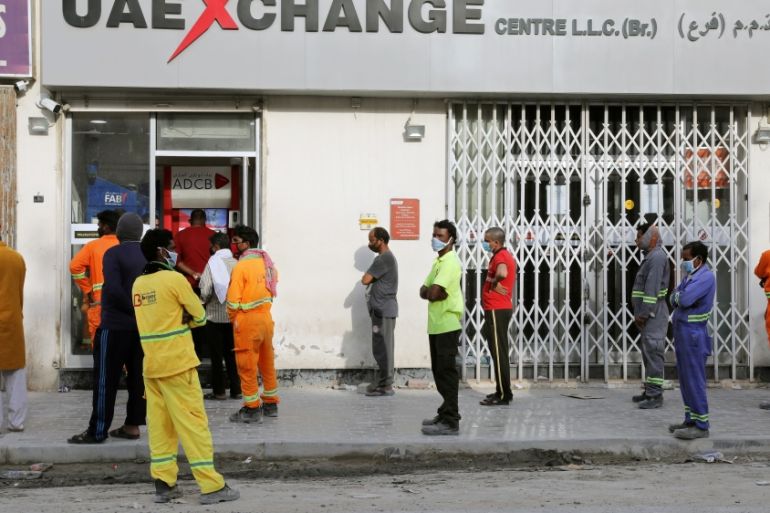UAE at risk of landing on watchlist over money laundering
UAE will now be put under a year-long observation by the Paris-based Financial Action Task Force.

The United Arab Emirates is not doing enough to prevent money laundering despite recent progress, and risks landing on an international watchlist, a global dirty-money watchdog – the Paris-based Financial Action Task Force (FATF) – said on Thursday.
The UAE, which includes the region’s financial and commercial centre Dubai, will now be put under a year-long observation by FATF.
Keep reading
list of 3 itemsUAE banks face write-downs of 25-50 percent on NMC debt: Sources
Coronavirus, expats and Ramadan stress test food security in Gulf
“The United Arab Emirates recently strengthened its legal framework to fight money laundering and terrorist financing but, as a major global financial centre and trading hub, it must take urgent action to effectively stop the criminal financial flows that it attracts,” the FATF said in a statement.
The intergovernmental body said that major or fundamental improvements are required in 10 of 11 areas evaluated for preventing money laundering and the financing of “terrorism” and weapons of mass destruction.
“The UAE has achieved positive results in investigating and prosecuting the financing of terrorism,” the FATF noted, “but its limited number of money laundering prosecutions and convictions, particularly in Dubai, are a concern given the country’s risk profile.”
The watchdog said UAE authorities are not fully exploiting financial intelligence to root out money laundering or trace the proceeds of criminal financial transactions.
The report, which took 14 months to compile and involved a visit to the UAE in July, gave a “low” rating for investigation and prosecution of money laundering and a “moderate” rating for preventive measures and financial sanctions related to countering the financing of “terrorism”.
If the UAE fails to improve, it could find itself alongside states such as Syria, Yemen and Pakistan, which the FATF deems to have “strategic deficiencies”.
The UAE has tightened financial regulations in recent years to try to overcome a perception among some foreign investors that it is a hot spot for illicit money flows.
It passed a new anti-money laundering and terror financing law in 2018, and has also worked with the United States to apply sanctions to armed groups.
The FATF said authorities must close loopholes in the property and precious-metal sectors that can be exploited by professional money launderers.
It also urged the UAE to actively pursue international money laundering networks and improve formal cross-border cooperation.
The report also said there was a “noticeable absence” of consistent investigations and prosecutions for money laundering cases related to high-risk crimes and sectors deemed high-risk, such as money transfer.
Between 2013 and 2019, the UAE prosecuted 92 people and convicted 75 for “terrorism” financing activities, FATF said, while there were 50 prosecutions and 33 convictions in money laundering cases between 2013 and 2018.
Among those, Dubai had only 17 money laundering prosecutions over five years.